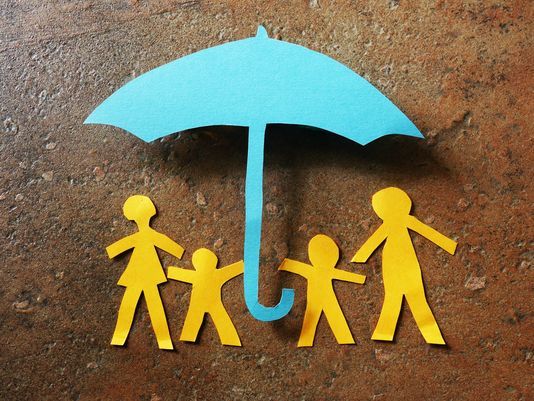Dear Pete,
Can you settle a debate my wife and I are having? We’re 33 years old and have two children. I’m the primary breadwinner by quite a bit. She makes about $18,000 per year working part time. We have a pretty good-sized mortgage and a fair amount of student loan debt. She thinks I should have life insurance, but I don’t. We’re trying to pay off our student loans, and the $65 per month in premium I’ve been quoted seems like too much. She doesn’t take into account that her parents are pretty well-off and would probably take care of her and the kids if I died. Who is right? — Mark, Philadelphia
Dear Mark: If I were to tell you that you were heinously wrong, would you prefer I did so at the beginning of this column or at the end? I will make the choice for you. You are heinously wrong.
Your wife is right. You need life insurance. Believe it or not, I’ve had this exact same discussion with no less than 25 men over the years.
I was having coffee with a friend the other day who happens to sell life insurance. Nestled between discussions of the holidays, our local sports teams and politics, he dropped a beautiful little nugget on me. “Life insurance needs to be sold, not just purchased.” Was this just a catchy phrase life insurance salespeople say, or was there truth to it?
Car insurance, for example, is purchased for a few different reasons. To begin, you are directly affected when a loss occurs. Additionally, you are required by law to purchase car insurance. Life insurance isn’t required by law, and you will be too dead to see the good that comes with proper protection.
Do you need to be sold life insurance?
Let’s dig into your situation, Mark, to find out. You need life insurance. I am 100% sure of this. If you understood this, you would have purchased it by now. You haven’t. Therefore, it must be sold to you. Even if I fail at trying to sell it to you, you still need it. Your semblance of a plan has at least three shortfalls.
First, how will your wife be able to stay in your current home, get out of her student loan debt, prepare for the cost of your kids’ education and prepare for retirement when your salary is gone? It will easily take hundreds of thousands to continue her life without you. Your death will not be a blip on the radar. It will be a catastrophic event for everyone around you. Financial stability will be the least of the problems for your family, but one of the only problems you can actually address before the fact.
Second, if you were to change your mind about getting coverage down the road you are going to pay for it dearly. Your premiums are based on your age and your health. Buying life insurance too late almost always results in bigger problems.
Finally, not only should you not rely on someone else to take care of your children, but what’s to say your in-laws can actually do it and still enjoy the fruits of their own planning? I clearly don’t know the specific financial reality of your “well-off” in-laws. One man’s well-off is another man’s fell-off. When we evaluate another person’s financial standing, we tend to do so in a relative nature. Your in-laws are better off than you, a person who has two young children, a bunch of student loan debt and a sizable mortgage. To be fair, most people in their 50s or 60s are better off than you. That doesn’t mean they can support a completely separate household.
If your wife’s parents are well-off, they likely got that way by making wise decisions. Do you think they ever said to themselves, “We should make wise decision just in case our son-in-law decides to not protect our daughter and grandchildren?”
Am I employing guilt to help sell you life insurance? You’re darn right I am. There’s nothing wrong with guilt as a motivator. I don’t step on my bathroom scale for giggles. If my number is ugly, I want the summoned emotions to affect my choices. You need to view life insurance differently. It’s not about what it does for you when you are alive and kicking, it’s about what it does to curtail the chaos that will definitely come with your death.

